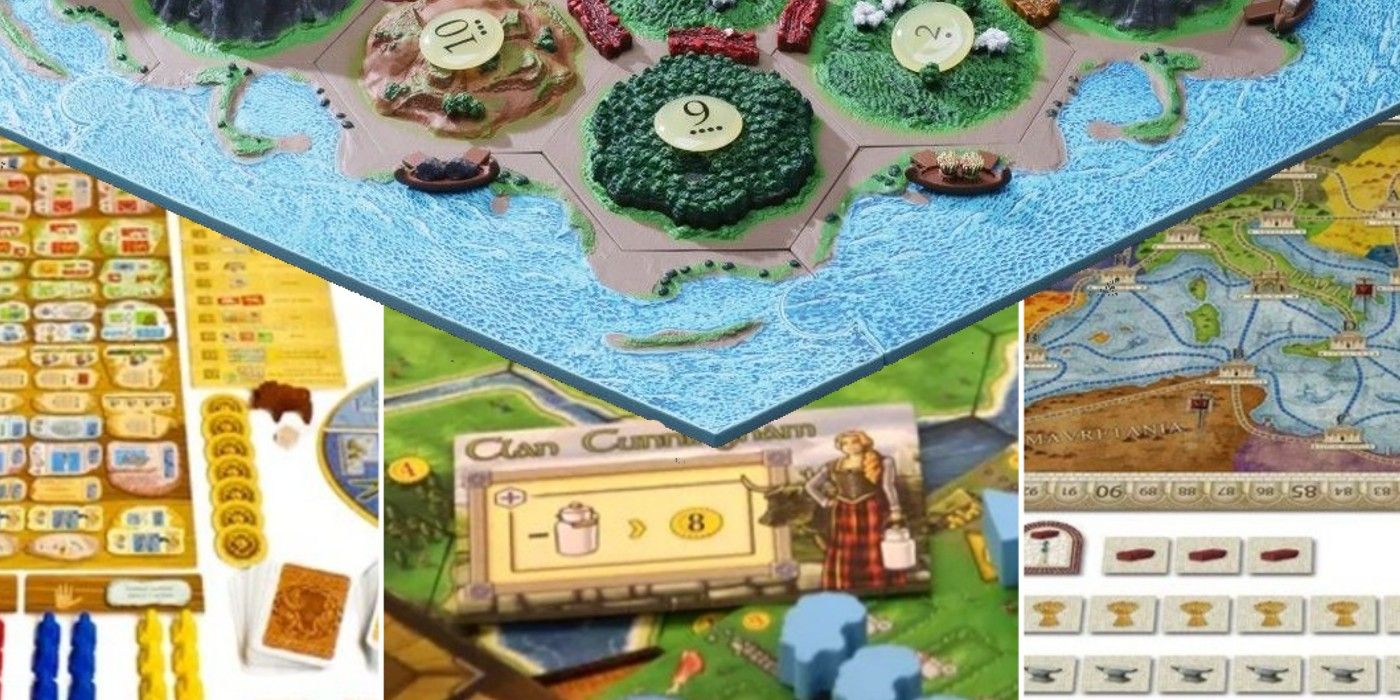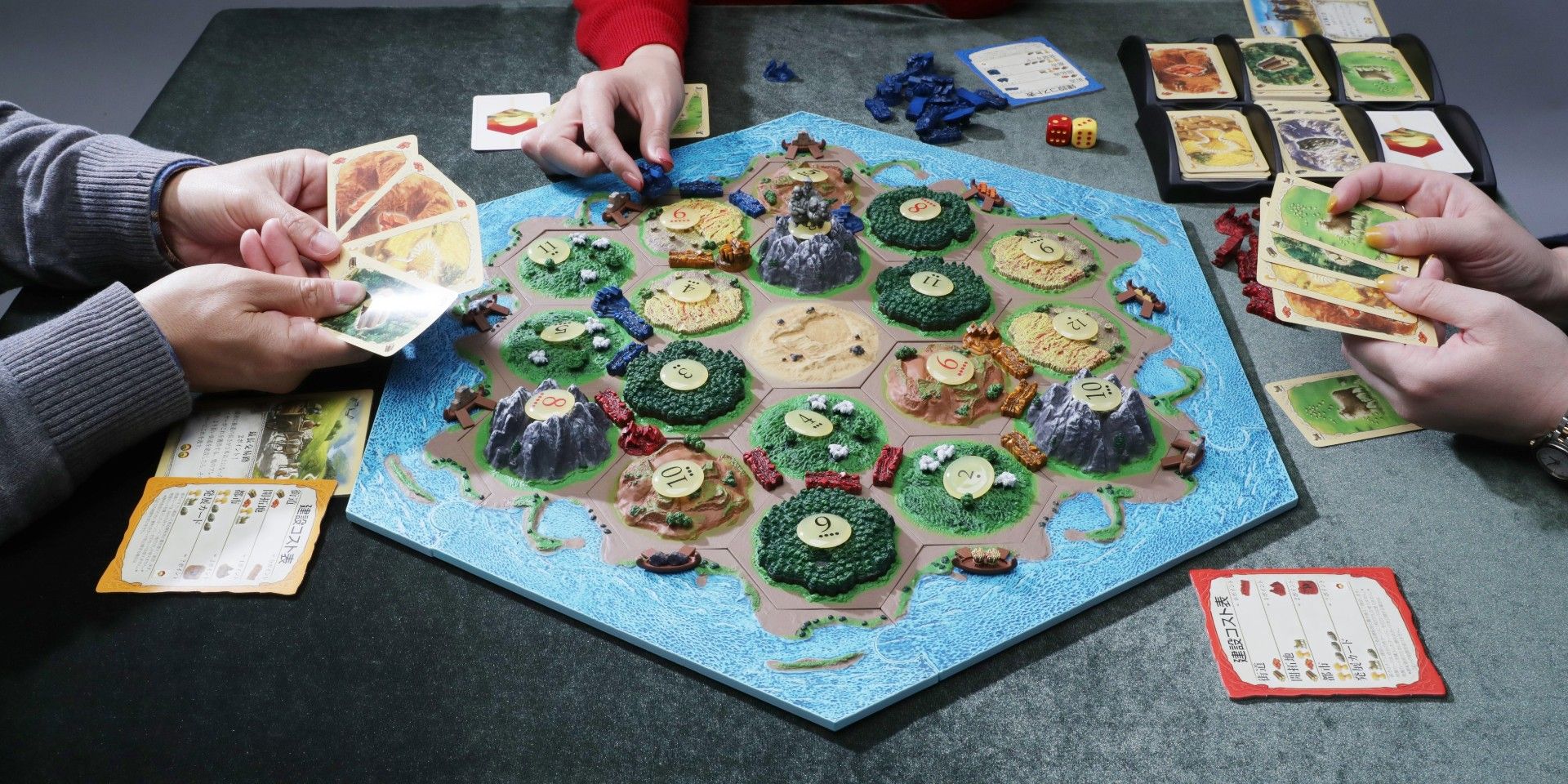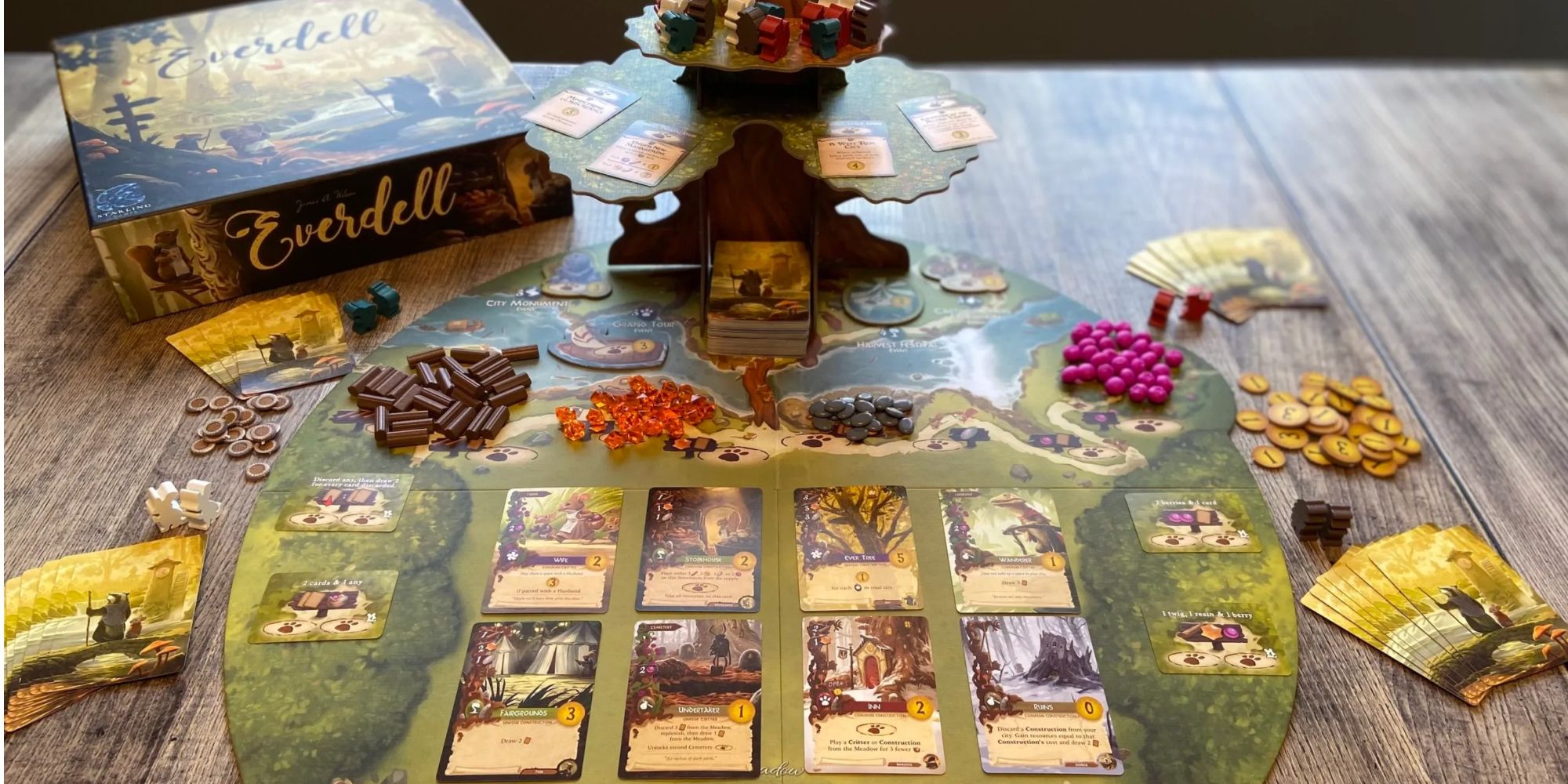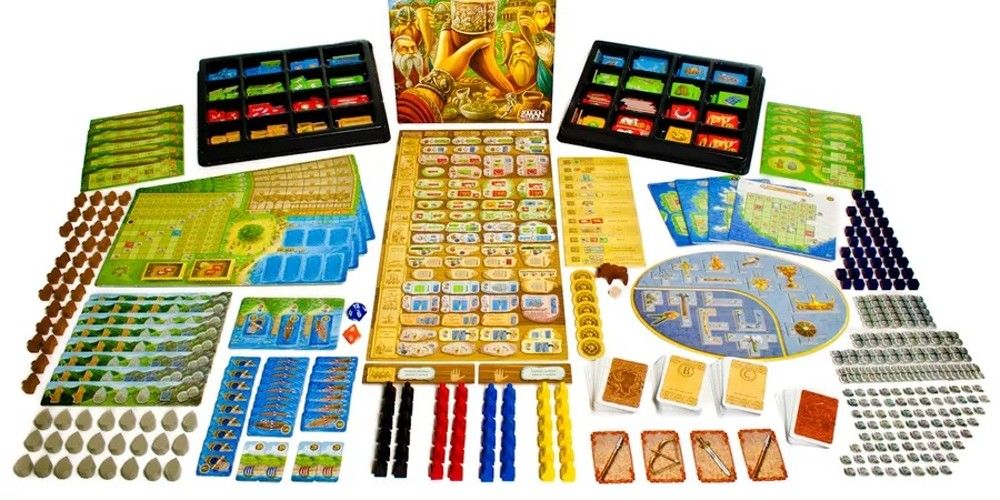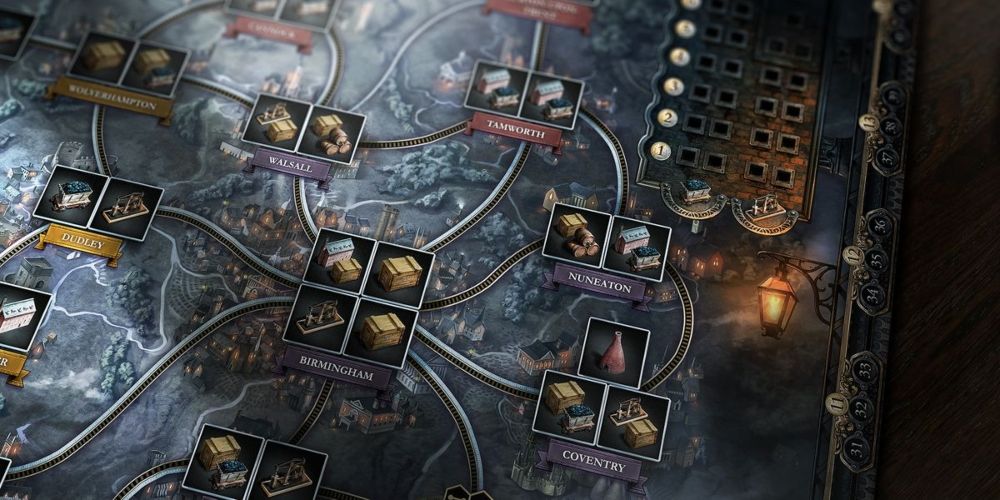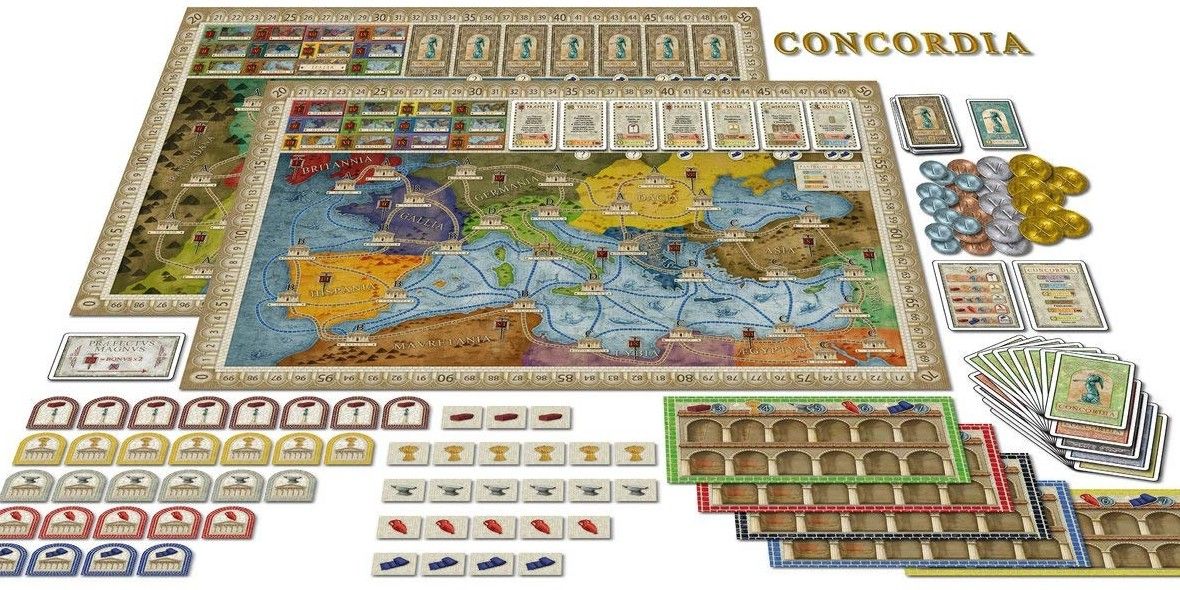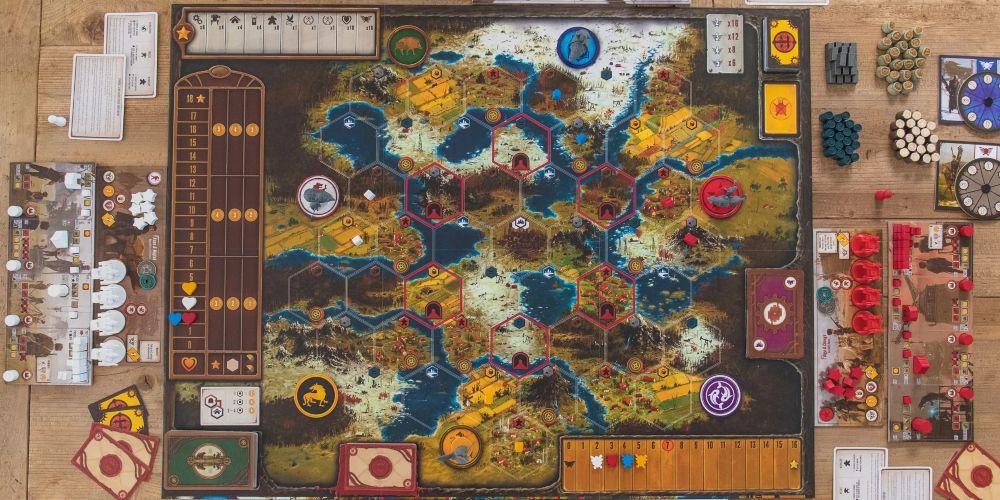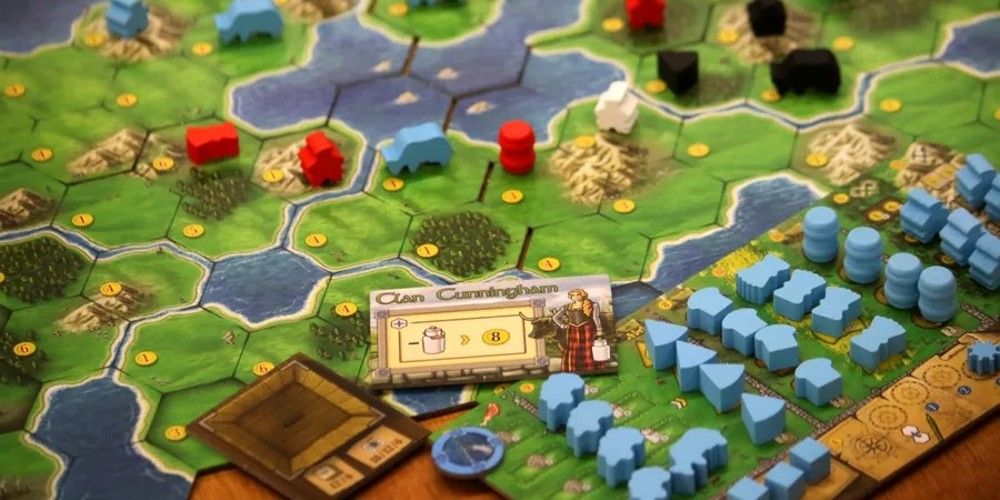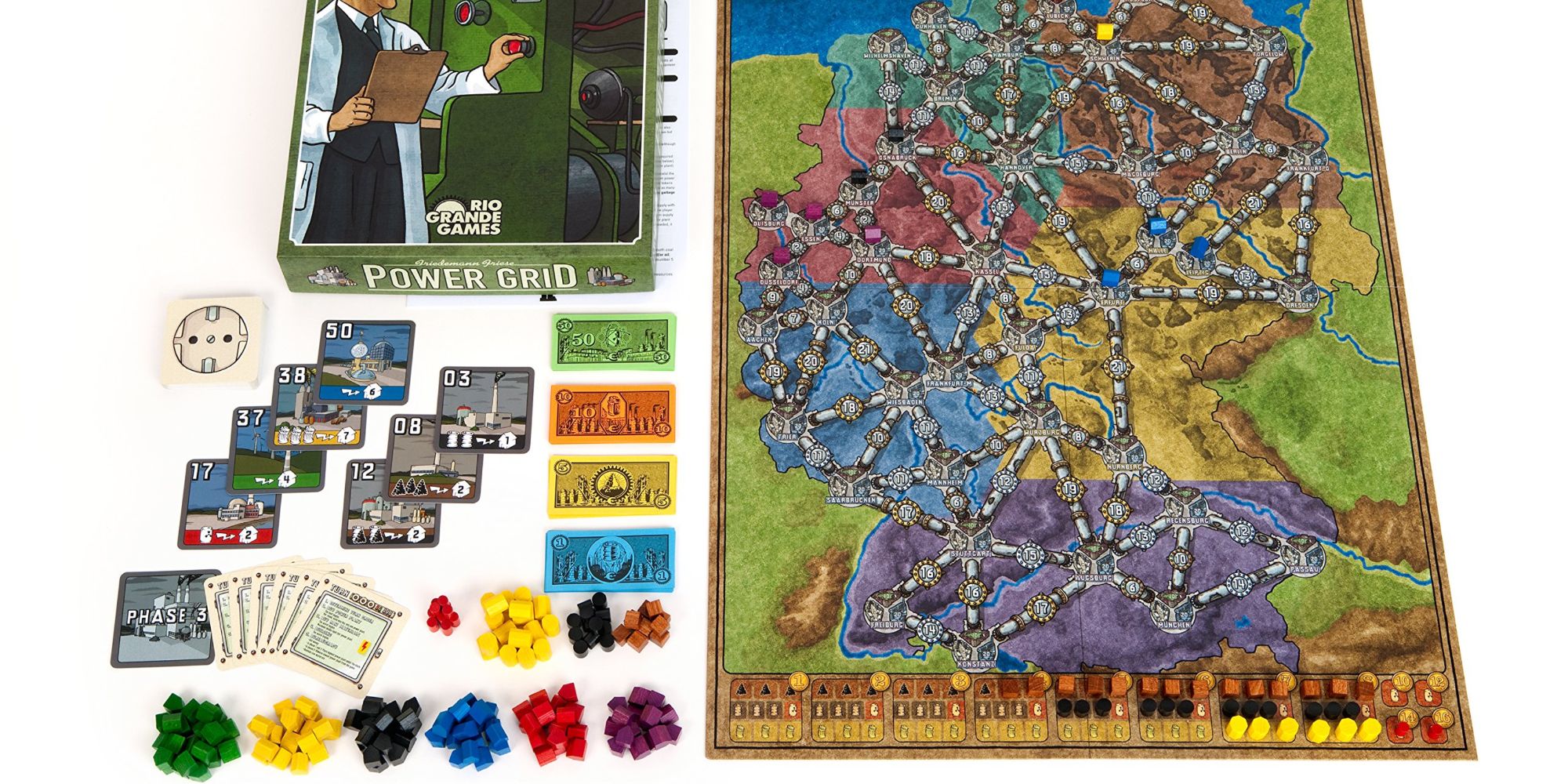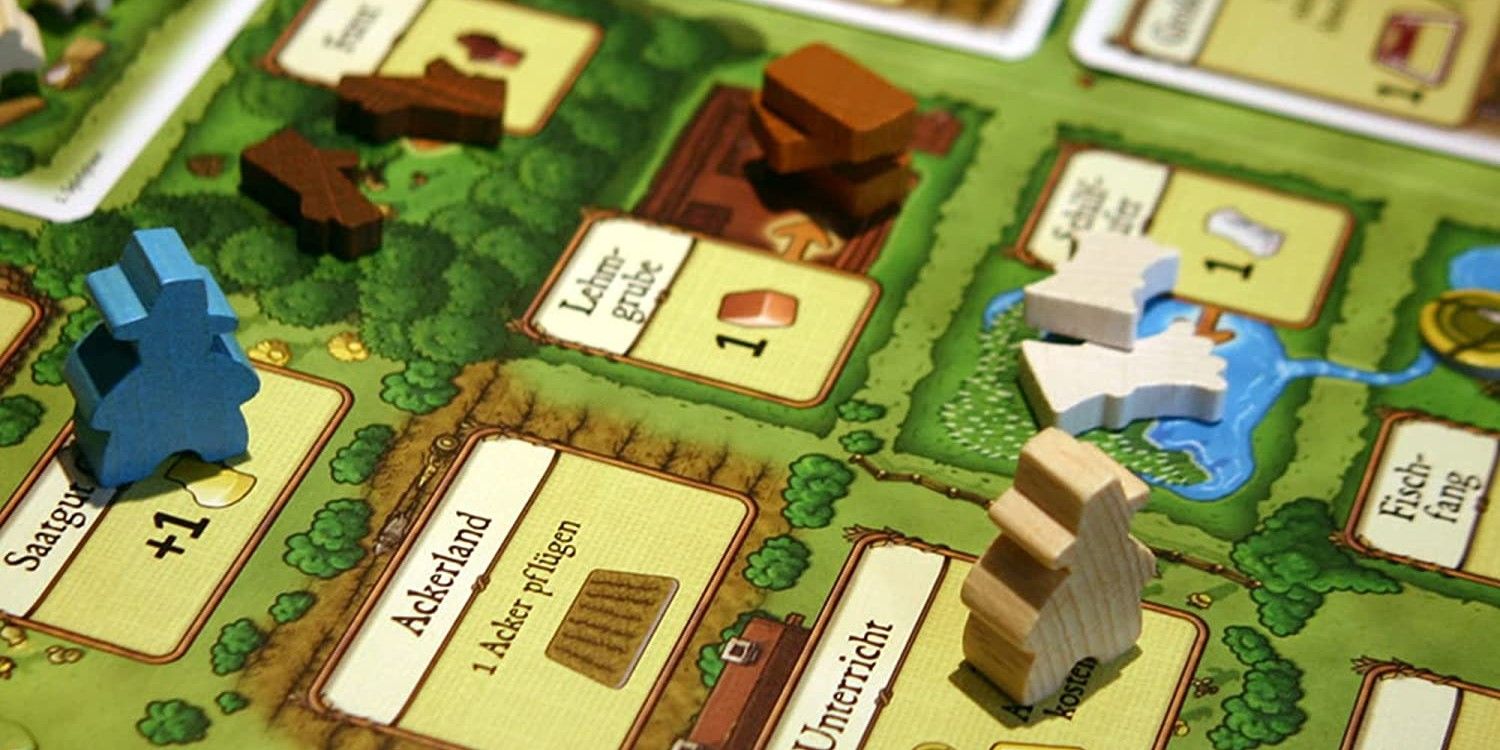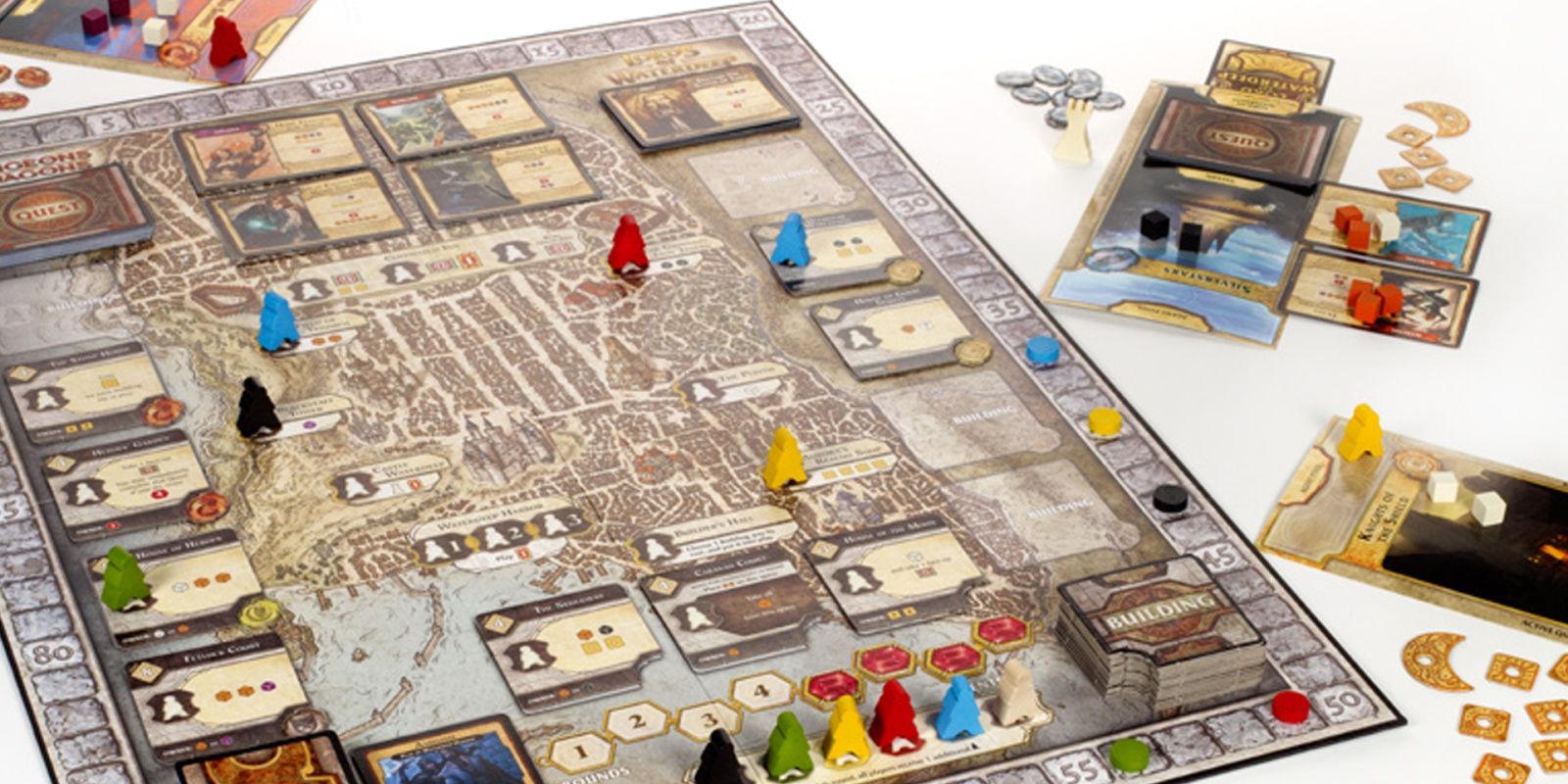As the board game industry has grown and evolved, the most popular genres of games have begun to develop subgenres. These subgenres are most often based on the games' core mechanics. For the overarching genre of strategic board games, a popular subgenre zeroes in on games that focus on resource management.
While technically, any game in which the players have access to resources and must spend them to progress contains a resource management mechanic, some games place more emphasis on this mechanic than others. Resource management can fold into other mechanisms, such as engine building, but can also exist separately.
10 CATAN Is A Resource Management Classic
The most well-known game emphasizing resource management is CATAN, formerly known as Settlers of Catan. First released in 1995, CATAN has players build settlements in a potentially random tile-based landscape. Each player vies to earn the most victory points by expanding their territory through roads, new settlements, and upgrades.
In order to construct these elements, they must use the resources they gain from the surrounding land. These base materials, brick, lumber, ore, grain, and wool, come from the different game tiles and can be traded between players.
9 Everdell Is A Combination Of Multiple Mechanics
Everdell is a more recent addition to the gaming world than CATAN but is almost as widely beloved. While some of the overall goals between these games may be similar, Everdell expands by combining multiple popular subgenre mechanics in the current board game market.
The base resources in Everdell are twigs, berries, pebbles, and resin. In addition to managing these adorable elements, Everdell's core mechanics also include worker placement and engine building, which can automate the production of base resources.
8 A Feast For Odin Is A Viking Village In A Box
While many resource management games focus exclusively on the construction that players can perform with them, A Feast for Odin takes a broader approach. This game focuses on the early years of Viking settlements, including their social routines. Not only can players lay their tiles to claim territory in the main hall and construct other structures, but they are required to produce a feast at the end of each round.
A Feast for Odin contains multitudes of tiles and game pieces, each integral to the development and continued progress of the village.
7 Brass: Birmingham Is An Alternative Resource Economy
Brass: Birmingham has a collective resource economy as opposed to other resource management titles, where each player earns resources through individual action. The base materials the game runs on are tied to their locations on the game board, equally available to the table at large.
Each player must strategize based on the number of resources they need and their ability to move those elements to their desired locations. On their turn, each player may take one of Brass: Birmingham's six designated actions: build, network, sell, develop, loan, and scout.
6 Concordia Is A Streamlined Standard
Gamers who favor the subgenre of resource management often speak highly of Concordia. Based on the real-world history of the roman Empire, Concordia streamlines the resource-collecting, trading, and construction elements made popular by CATAN, along with its victory point system.
Concordia is also recommended for tables with a higher number of players, as it remains balanced when faced with larger groups. The implementation of Personality Cards expands players' opportunities to earn bonus victory points throughout the game and adds variety to a gameplay experience that is otherwise quite similar to its predecessors.
5 Scythe Is A Mech-Building Alternate History
Many resource management games contain significant engine-building mechanisms, and Scythe is one of these titles. Scythe is set in an alternate version of 1920s Eastern Europe, featuring diesel-punk mechs and heavy political conflicts.
Scythe is a critically acclaimed title and a favorite among many gaming circles. A different version intended for younger audiences called My Little Scythe was created by fans in 2017 as a print-and-play option and was officially backed by the publisher and subsequently produced as a fully realized game.
4 Clans of Caledonia Is A Look At The Dawn Of Industry
Set in a time in Scotland's history when agriculture gave way to industry, Clans of Caledonia takes the ebb and flow of trade and puts it in the hands of the players. The players each represent a historical clan as they fight for control of the region. At the same time, they vie for control over the primary resources of cotton, sheep, and whiskey.
Each clan has a unique ability that forms the cornerstone of the player's strategies, and there are eight clans to choose from, despite the four-player limit.
3 Power Grid Is A Title With A More Modern Theme
Power Grid allows players firsthand experience of what lurks behind electrical production. The goal of Power Grid is to be the largest supplier of energy at the table, which players must achieve by acquiring and running power plants.
Throughout the game, they compete to control the plants and the raw materials required to run them, including coal, oil, garbage, and uranium. Some power plants are more efficient than others, especially wind and solar facilities that don't require any base resources to generate power.
2 Agricola Is Adjustable To Table Needs
The 2007 hit game Agricola is the story of a farmer and their spouse trying to carve a legacy in the harsh lands surrounding them. In addition to the twists and turns that endanger their individual ventures, players must cope with the added twist of having to fight with their neighbors over resources.
Times are tough in Agricola's world, and actions are limited to one player per round, but the game is built to be modified depending on the players' desired difficulty. This is predominantly accomplished through the use or non-use of Minor Improvements and Occupations cards.
1 Lords Of Waterdeep Is Resource Management In The World Of Dungeons & Dragons
Lords of Waterdeep takes its name from the masked lords who secretly run the city of Waterdeep in the Forgotten Realms setting for Dungeons & Dragons. Instead of being a collection of adventurers seeking gold and glory by raiding dungeons and slaying monsters, the players take on the roles of those who hire and direct such champions.
Players send their hired agents to collect the resources needed to complete quests. As lords, they also can construct additional buildings, which enhances resource production, to solidify their political power.

